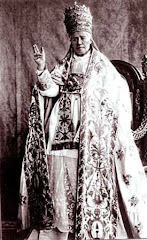

Many have now forgotten that July 4th, the day that we celebrate as the one on which we gained freedom from tyranny and the right to self-determination, is intimately connected also with the loss of states’ rights to self-determination. It is the date of the Battle of Gettysburg, the battle that turned the tide against the Southern effort at freedom and self-determination. I’ve included a number of quotes below to help put things into perspective for those who have uncritically swallowed whole everything written in our high-school history books. These quotes come from the following website: http://www.geocities.com/mark_willey/civlwar.html
"My paramount objective in this struggle is to save the Union, and is not to either save or destroy slavery. If I could save the Union without freeing any slave I would do it, and if I could save it by freeing all the slaves I would do it; and if I could do it by freeing some of the slaves and leaving others alone I would also do that." - Lincoln to Horace Greeley of the NY Tribune August 22, 1862.
Secretary of State William Steward said about the Emancipation Proclamation: "We show our sympathy with slavery by emancipating slaves where we cannot reach them and holding them in bondage where we can set them free."
Secession to protect slavery made no sense at all, even though some Southerners said so, because slavery was secured by the Constitution, by the Supreme Court and even by Abe Lincoln's public promises that he had neither plans nor desire to interfere with it. The war was actually a tariff war - Lincoln trying to hang on to millions of dollars per year in tariffs on Southern goods. In his first inaugural Lincoln promised a military invasion of any state that failed to collect tariffs for the federal government - that he would in his own words, "hold, occupy and possess" said tariffs by "using force against or among the people."
After the 1828 tariff law, the South almost seceded. In 1840, the South paid 84% of the tariffs, rising to 87% in 1860. They paid 83% of the $13 million federal fishing bounties paid to New England fishermen, and also paid $35 million to Northern shipping interests which had a monopoly on shipping from Southern ports. The South, in effect, was paying tribute to the North. The Republican platform of 1860 called for higher tariffs; that was implemented by the new Congress in the Morill tariff of March 1861, signed by President Buchanan before Lincoln took the oath of office. It imposed the highest tariffs in US history, with over a 50% duty on iron products and 25% on clothing; rates averaged 47%. Note the close proximity of this tariff to the start of the war on April 12. Cause and effect.
As the North American Review (Boston, October 1862) put it: "Slavery is not the cause of the rebellion ....Slavery is the pretext on which the leaders of the rebellion rely, 'to fire the Southern Heart' and through which the greatest degree of unanimity can be produced....Mr. Calhoun, after finding that the South could not be brought into sufficient unanimity by a clamor about the tariff, selected slavery as the better subject for agitation". (Source for this section - When in the Course of Human Events: Arguing the Case for Southern Succession, by Charles Adams)
Note on the Gettysburg Address by H.L. Mencken
"The Gettysburg speech was at once the shortest and the most famous oration in American history...the highest emotion reduced to a few poetical phrases. Lincoln himself never even remotely approached it. It is genuinely stupendous. But let us not forget that it is poetry, not logic; beauty, not sense. Think of the argument in it. Put it into the cold words of everyday. The doctrine is simply this: that the Union soldiers who died at Gettysburg sacrificed their lives to the cause of self-determination – that government of the people, by the people, for the people, should not perish from the earth. It is difficult to imagine anything more untrue. The Union soldiers in the battle actually fought against self-determination; it was the Confederates who fought for the right of their people to govern themselves." --THE SMART SET, May 1920
The United States is a voluntary association created by the states and states have and had every right to secede. Lincoln was wrong. He did not have the authority, either Constitutional or moral, to make war on the South. The Declaration of Independence itself provides for secession - "That to secure these rights, Governments are instituted among Men, deriving their just powers from the consent of the governed. That whenever any form of government becomes destructive of these ends, it is the Right of the people to alter or abolish it, and to institute new Government..."
"If tyranny and despotism justified the Revolution of 1776, then we do not see why it would not justify the secession of 5 millions of Southrons from the federal union in 1861." -- NY Tribune 12/17/1860
To determine the moral right in this matter, ask yourself this simple question: "Would any colony have agreed to join the Union if it had known it would have to fight to get out?" Not a single one would have.
"Opposing secession changes the nature of government from a voluntary one, in which the people are sovereigns, to a despotism where one part of the people are slaves." -- NY Journal of Commerce 1/12/1861
Jefferson Davis in his inaugural address stated that, "the American idea [is] that governments rest on the consent of the governed, and that it is the right of the people to alter or abolish them at will whenever they become destructive of the ends for which they were established." Similarly President James Buchanan in his annual message to Congress in 1860 said, "The fact is that our Union rests upon public opinion and can never be cemented by the blood of its citizens...If it can not live in the affections of its people, it must die."
Horace Greeley wrote "We hope never to live in a republic whereof one section is pinned to the residue by bayonets" (11/9/1860).
George Mason University Professor Walter Williams argues that Lincoln's defeat of the South meant the abrogation of the Tenth Amendment - that the concentration of imperial power in Washington was an inevitable result of the war. His analogy is that if you tell a wife she cannot divorce under any circumstances, then her husband can treat her any way he wants. The federal government can treat states any way they want and they want to reduce them to subjugated vassal extensions. As we shall see below, the war was death to the Constitution of the United States in many ways.
Founding Father Alexander Hamilton argued at the Constitutional Convention, "To coerce the states is one of the maddest projects that was ever devised...What picture does this idea present to our view? A complying state at war with a non-complying state: Congress marching the troops of one state into the bosom of another? Here is a nation at war with itself. Can a reasonable man be well disposed toward a government which makes war and carnage the only means of supporting itself -a government that can only exist by the sword?"
For more, please visit the following site that provides many parallels between the Founding Father’s reasons for declaring independence from England and the difficult situation of the South: http://www.lewrockwell.com/dilorenzo/dilorenzo6.html



















1 comment:
In brief: Southern States were anti-states rights when it came to slavery. This is not to be augumentative; but to add to serve as a topic of discussion.
In the past, when I taught American History, I showed my students the quotes from Lincoln stating that he'd rather keep slavery if it meant keeping the Union.
However, Lincoln was a Republican; and Republicans grew out of the Free Soilers. Although Lincoln did not wage the war against slavery, there is no doubt that the aim of the party was a gradualist approach to ending slavery.
Republicans were against the expansion of slavery, believing that if slavery could be arrested in the South, it would eventually die out as an instituion.
Although the Lincoln did not fight over slavery, as you mention, slavery was the highlighted issue by Southerners. They, as the kids would say, knew what was up.
For example, the Vice-President of the Confederacy, Alexander Stevens, says in his Cornerstone Speech that slavery was "was the immediate cause of the late rupture and present revolution" and that the cornerstone -- the very foundation of the Confederate constitution -- is "the great truth, that the negro is not equal to the white man; that slavery - subordination to the superior race - is his natural and normal condition."
South Carolina's Declaration of Immediate Causes for secession begin by stating that the state is free and independent; and that the people have a right to abolish a government which fails to live up to its end of the contract.
So, what was the "proof" that the federal government was failing to live up to its part of the contract? This is important, so I will quote it at length.
From the South Carolina Declaration: "But an increasing hostility on the part of the non-slaveholding States to the institution of slavery, has led to a disregard of their obligations, and the laws of the General Government have ceased to effect the objects of the Constitution. The States of [Northern states listed here] have enacted laws which either nullify the Acts of Congress or render useless any attempt to execute them. In many of these States the fugitive is discharged from service or labor claimed, and in none of them has the State Government complied with the stipulation made in the Constitution."
In other words, Northern States asserted a right to grant freedom to slaves within their own states; and Southern States said no such right existed, denying the much ballyhooed "States' Rights" platform.
Seven Southern states left the Union even before Lincoln was sworn in. However, their reasons for doing so were not so pure as simple "States' Rights" issues. They were trying to defend slavery.
Post a Comment